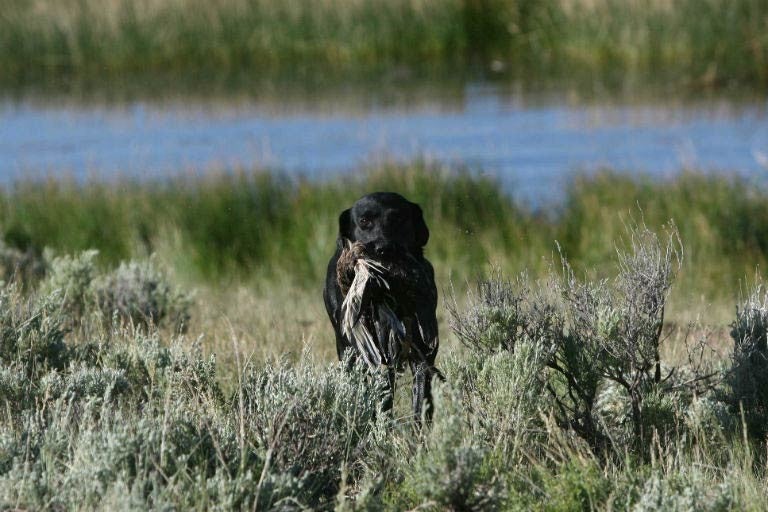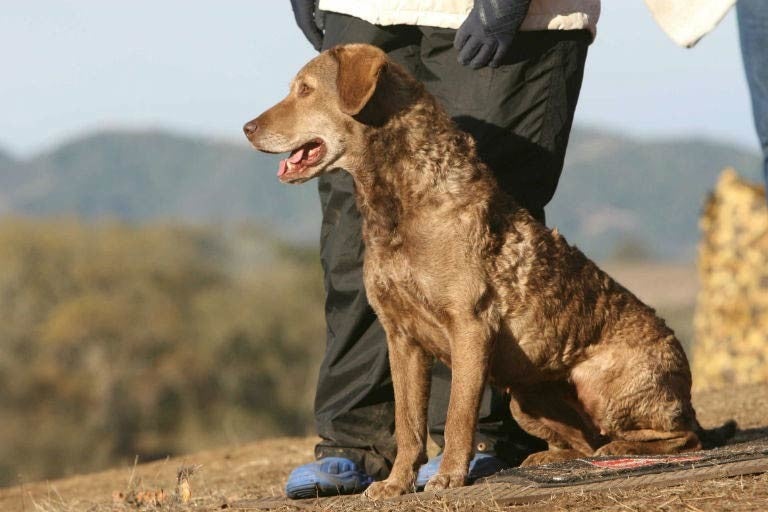With Retrievers being one of the most popular breeds in America, it’s a safe bet that thousands upon thousands of hours are spent playing fetch each year. While you might think it’s just a form of play (and a fun party trick!), it’s actually much more: It’s a Retriever embracing his natural ability to respond to direction, and is the perfect foundation to participate in a Retriever Field Trial (“competition”).
Retriever Field Trials measure how well they can retrieve in the field at longer distances than in hunt tests, and are judged in comparison to other dogs entered rather than pass/fail. Judges look at your dog’s natural abilities such as marking a fall, memory, intelligence, attention, style, courage, and perseverance. They will also examine your dog’s proficiency in learned abilities like steadiness, control, response to direction, and delivery of bird. Handler and dog must work together to have a successful outcome. The pinnacle accomplishment for any dog running in field trials is to earn a Field Champion (FC) title designation or an Amateur Field Champion (AFC) designation — or for some, it might be both!
-
Eligibility
+
All dogs six months of age or older from the following breeds are eligible to participate in Retriever Field Trials:
AKC Recognized Breeds
- Chesapeake Retrievers
- Curly-Coated Retrievers
- Flat-Coated Retrievers
- Golden Retrievers
- Labrador Retrievers
- Irish Water Spaniels
- Nova Scotia Duck Tolling Retrievers
- Dogs of these breeds recorded with the Purebred Alternative Listing Program/Indefinite Listing Privilege (PAL/ILP) are not eligible to participate.
- Spayed and neutered dogs are eligible to participate.
- Females in season are not eligible to participate.
- Dogs with Limited and Conditional Registrations are eligible to participate.
-
Get Started
+
The most important thing to know is to start training your dog early. It’s much easier to train a puppy than a full-grown dog. To find a training class, visit your local AKC club. Some offer practice sessions and you might find someone willing to take you out to work your dog. Remember, everyone was once in your shoes so don’t be afraid to ask for advice! Training will involve learning how to respond to a whistle; how to retrieve and heel; and how to swim, since many trials involve racing through small ponds.
We also recommend you attend a few Retriever field trials in person and get the rulebook because the more trials you see, the better you will understand how they work.
Ultimately, when you’re ready to compete, you’ll need to choose the right event or you. There are several types of Retriever Field Trials including a Qualifying Stake; Open, Limited, Special and Restricted All-Age Stakes; Amateur All-Age Stake; and more. Choose the right trial for you and your dog, and request an entry form.
- Find An Event +
- Resources +




